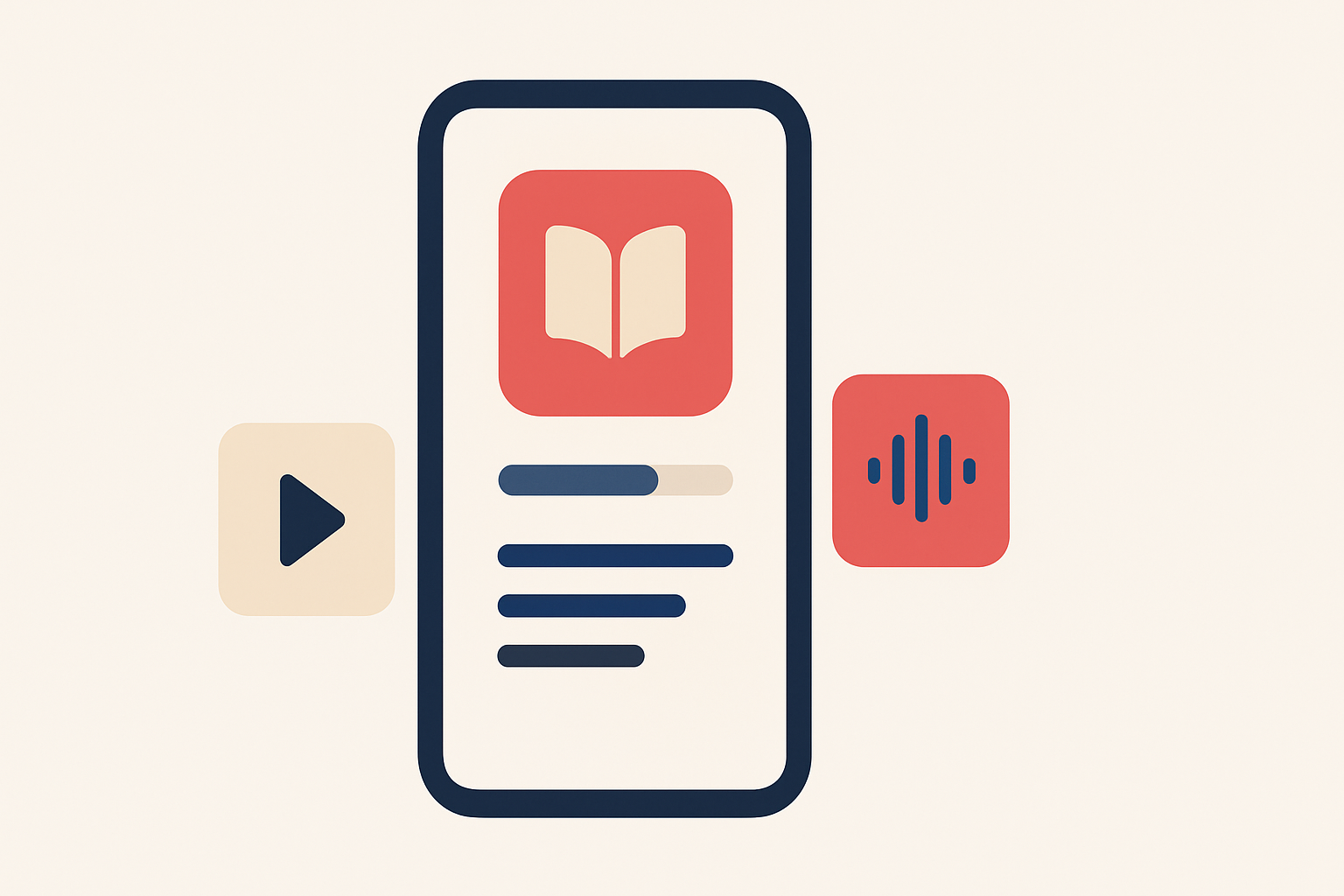Future of Microlearning on Mobile

Traditional learning models are struggling to stay relevant in a mobile-first world. Long lectures, bulky modules, and static course formats aren’t aligned with how modern learners consume information. Today’s audiences expect flexible, engaging, and accessible content they can learn from on the go. That’s where microlearning is stepping in, reshaping education with short, impactful lessons designed for mobile-first experiences.
For publishers, educators, trainers, and creators, understanding the future of microlearning is critical. The shift toward mobile-first education isn’t just a trend—it’s defining how learning and professional training will scale in the years ahead. Platforms like Audiorista make it easier than ever to launch and manage mobile-first learning apps without complex tech barriers, empowering content owners to stay ahead of this transformation. With Audiorista’s no-code platform, users can quickly create branded mobile apps, manage audio and video content, and deliver engaging microlearning experiences to their audience.
This article explores the rise of microlearning, the strategies behind making it mobile-first, and the industry trends driving its future—offering actionable insights for those ready to adapt and lead.
Why microlearning works in a mobile-first world
The growth of microlearning has accelerated because it aligns perfectly with modern mobile use. Short, bite-sized lessons fit into busy schedules and respond directly to declining attention spans. Instead of allocating hours for extended training or studies, learners can absorb knowledge in focused bursts, often in just a few minutes.
Delivering learning on smartphones extends accessibility, giving people the ability to engage with content during commutes, work breaks, or downtime. This flexibility is essential for today’s workforce and global learners, removing traditional barriers like location, device dependency, or rigid learning schedules.
Beyond convenience, microlearning supports better knowledge retention. Structured in small modules, lessons are easier to recall and apply. This combination of accessibility, flexibility, and improved learning outcomes is why microlearning has become a cornerstone of mobile-first education strategies.
The future of mobile-first education
The mobile-first landscape is shaping how education will evolve, with industries embracing new formats and technologies. AI personalization enables adaptive learning paths tailored to individual skills and progress. Gamified elements turn mobile lessons into more immersive, motivation-driven experiences by introducing challenges, goals, and even progress rewards. At the same time, on-demand knowledge allows learners to access information exactly when they need it, creating a dynamic and responsive approach to education.
In professional training, microlearning is already changing how organizations skill and reskill employees. Providing bite-sized lessons on demand helps workplace training stay relevant, practical, and directly tied to performance needs. Online education platforms are also adopting this approach, structuring courses in shorter formats to match learner expectations and increase completion rates. The combination of technology and microlearning is reshaping the future of mobile-first education across multiple industries.
Building mobile-first microlearning strategies
Adopting microlearning requires a thoughtful mobile-first approach. Educators, trainers, and course creators should focus on structuring their lessons for brevity without sacrificing clarity. Concise content makes it easier to consume on smaller screens and ensures learners gain value quickly.
Interactivity is another key factor. Adding features like quizzes, decision paths, or quick challenges helps make microlearning more engaging and impactful. Coupling this with progressive pathways ensures learners can build on each module toward larger educational goals while still experiencing each lesson as a self-contained piece.
The right technology is critical to delivering these experiences effectively. Platforms like Audiorista provide tools to launch your own mobile learning app without needing to manage the complexities of app development. Audiorista’s platform enables seamless integration of audio and video lessons, interactive features, and user analytics, allowing creators and organizations to focus on content strategy and pedagogy rather than technical execution.
Key trends in digital microlearning to watch
Digital adoption is driving new shifts in how microlearning gets applied and delivered. Integration into workplace training is perhaps the strongest development, as organizations seek scalable solutions for continuous education. Combining microlearning with hybrid models of in-person and online learning supports both flexibility and engagement. Similarly, microlearning is increasingly designed as performance support, giving employees access to short training or answers at the exact moment of need.
For long-term sustainability, monetization models are also playing a key role. Turning microlearning into recurring value through subscription-based delivery ensures both accessibility for learners and predictable revenue for content owners. Publishers and trainers looking to build recurring models can learn more about turning your courses into a subscription app, a model that enables ongoing growth and learner loyalty. Audiorista supports a variety of monetization options, including subscriptions, in-app purchases, and integration with third-party tools, making it easier for content owners to generate revenue from their microlearning offerings.
Designing an engaging mobile learning experience
A great mobile-first learning experience depends on design. Personalization is at the core, ensuring learners receive content that’s relevant to their needs and learning journeys. Intuitive navigation is essential, as learners must be able to access lessons quickly without frustration or friction.
Offline access is increasingly important, as it enables microlearning to be truly mobile and reliable across different contexts and bandwidths. Audio-first options are also expanding the way microlearning is delivered, enabling learners to consume lessons through listening instead of only visual interaction, further supporting flexibility. Audiorista’s platform offers offline access and supports audio-first learning, ensuring learners can engage with content anytime, anywhere, even without an internet connection.
Well-designed mobile learning directly translates to retention and satisfaction. By combining strong content strategy with thoughtful mobile-first design principles, educators and businesses can keep learners engaged and returning to their apps regularly.
Ready to future-proof your microlearning strategy? Build your own mobile learning app with Audiorista and deliver bite-sized lessons directly to your learners.


